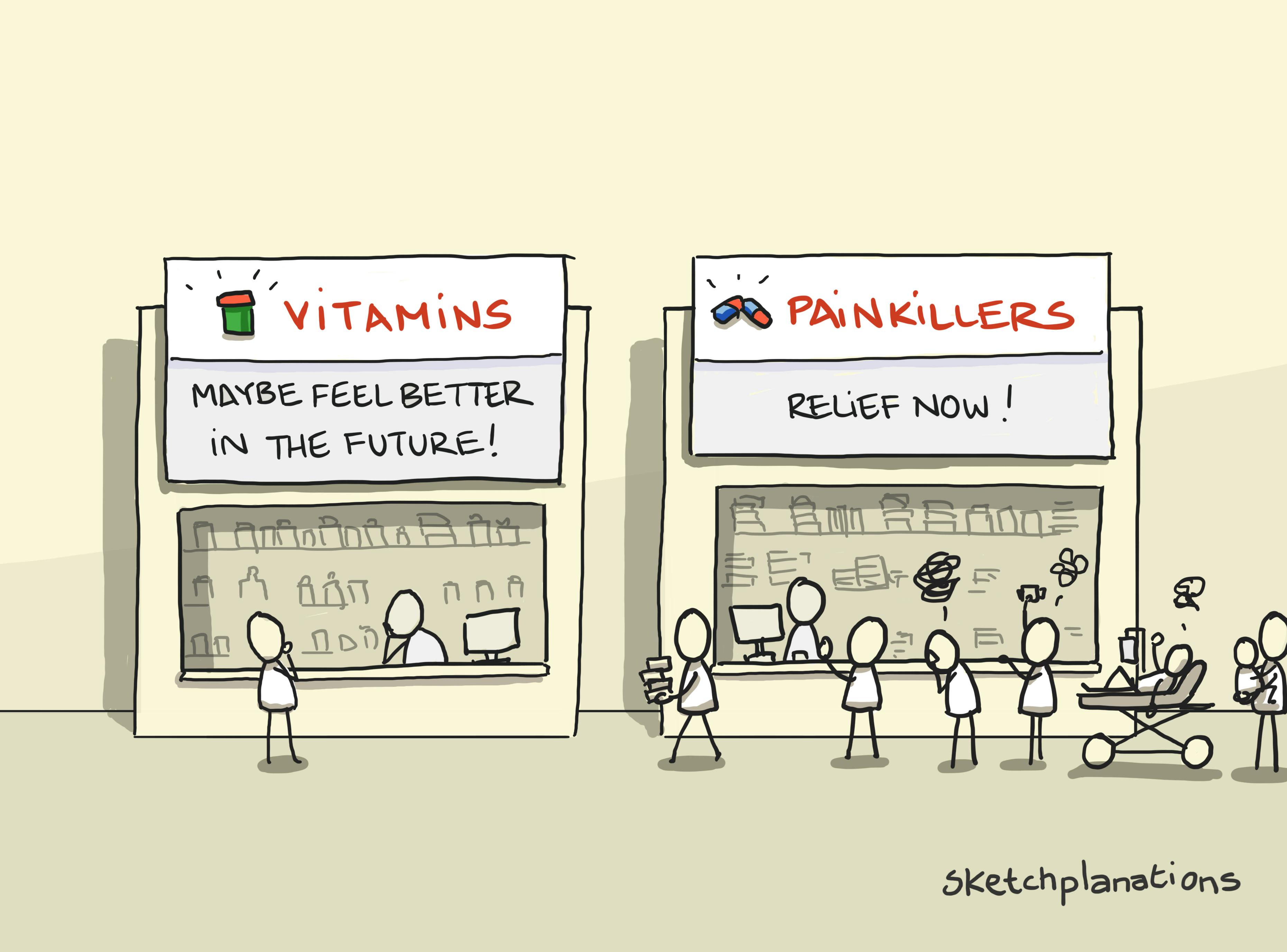Painkillers and vitamins

👇 Get new sketches each week
Sell painkillers, not vitamins, the classic business advice goes.
The vitamin seller aims to help you stay healthy in the long run— to help you avoid future pain and trial by keeping you clear of sickness.
However, the painkiller seller has some advantages. If you're experiencing pain right now, a painkiller offers immediate relief. The benefit is instant and tangible. Unlike the vague and uncertain nature of future illnesses, pain is immediate and unmistakable.
Knowing if a painkiller worked is easy, as the pain will disappear. It's hard to tell if a vitamin worked. If I don't get sick, was it the vitamins, my sleep, exercise, or, well, anything else that did it?
This dynamic can lead to unfortunate consequences. We may prioritise our current needs over future well-being, such as fixing a broken car when it breaks rather than maintaining it. We need help saving money for the future. We tackle the "urgent" and neglect the "important-not urgent." We might overestimate the likelihood of making good choices in the future. In essence, it's easy to downplay future challenges compared to our current predicament.
Some examples:
- implementing security measures vs. fixing bugs
- looking after your car vs. fixing your car when it breaks down
- doing daily exercises vs. going to the doctor when you're sick
- shopping and preparing food vs. ordering takeaway now
- making a product easier to use vs. making the product compliant
- preparing fruit to eat later vs. grabbing a cookie now
- insulating your house vs. putting the heating on now
Some see business as selling candy, vitamins, and painkillers . Candy is a treat, but it's easy to live without. Vitamins promise to make life better, but you can do without them. Painkillers are must-haves as they solve an immediate, tangible need.
Also see: present bias, tragedy of the commons, the dilution effect, the Shirky principle.

